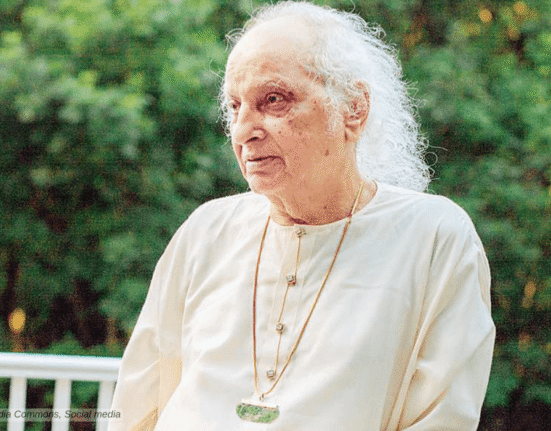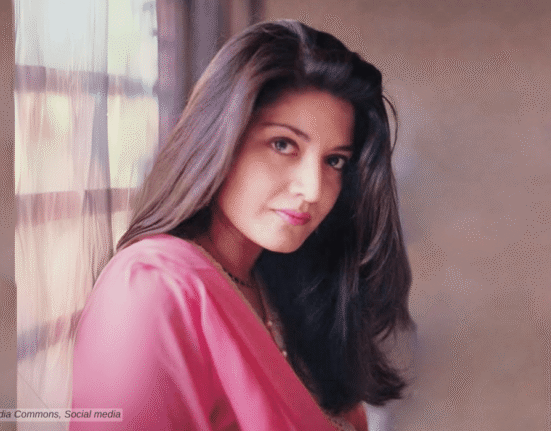Pandit Bhimsen Joshi was a legendary vocalist and one of the foremost exponents of Hindustani classical music. Joshi’s powerful and emotive voice, coupled with his mastery of the Kirana gharana, garnered him immense recognition. His ability to connect with audiences on a profound level and convey the spiritual essence of his music made him a revered figure in the world of classical music.
In 1998, he was gets the Sangeet Natak Akademi Fellowship, the highest honour conferred by the Sangeet Natak Akademi. He got Padma Shri in 1972, Padma Bhushan in 1985, and Padma Vibhushan in 1999. In 2009 he received the Bharat Ratna, the
Early Life and Training
Pandit Bhimsen Joshi was born on February 4, 1922, in Gadag, Karnataka. His journey began at an early age when he displayed an innate talent for music. He heard a recording of Abdul Karim Khan’s Thumri “Piya Bin Nahi Aavat Chain” in Raga Jhinjhoti when he was a child, which inspired him to become a musician. His first music teacher was Channappa of Kurtakoti.

It feels like a tale of fantasy but in 1933, the 11-year-old Joshi left home to find a guru to learn music; he travelled for 3 years, moving city to city. First he goes to Pune and from there to Gawlior, where he joins Madhava Music School, a school run by Maharajas of Gwalior, with the help of famous sarod player Hafiz Ali Khan.
In his travels, he goes to Delhi, Kolkata, Gwalior, Lucknow, and Rampur, where he meets Ustad Mushtaq Husain Khan of Rampur Gharana and stays for more than one year. Eventually, his father succeeded in tracking him down in Jalandhar and brought young Joshi back home.
In 1936, Sawai Gandharva, a disciple of Ustad Abdul Karim Khan, Joshi, stayed at his house in the guru-shishya (teacher-student) tradition. Sawai Gandharva’s other disciples were Dr. Gangubai Hangal, Firoz Dastur, and Basavaraj Rajguru.
The Making Of Lengend
Joshi first performed live in 1941 at the age of 19. His debut album was released by HMV in 1942. It was the start of an extraordinary career of over six decades. He toured all over the world and mesmerised the music lovers. Soon he made a name for his accurate notes, dizzyingly-paced taans that made use of his exceptional voice training, and a mastery over rhythm.
His biggest strength was his spontaneity. Joshi was known to create beautiful musical phrases and intricate tans more from intuition than careful planning. Some of Joshi’s more popular ragas include Shuddha Kalyan, Miyan Ki Todi, Puriya Dhanashri, Multani, Bhimpalasi, Darbari, Malkauns, Abhogi, Lalit, Yaman, Asavari Todi, Miyan Ki Malhar, and Ramkali.
Joshi was primarily influenced by his gurus, Sawai Gandharva and Ustad Abdul Karim Khan. He also had great regards for legends like Smt Kesarbai Kerkar, Begum Akhtar, and Ustad Amir Khan.
Bhimsen Joshi was best known for his “khayal” singing. He also sang popular renditions of devotional music (bhajans and abhangs in Hindi, Marathi, and Kannada) to great critical acclaim.


Bhimsen Joshi in Films
He also did playback singing in a few films like Basant Bahar (1956) with Manna Dey, Swayamvar zale Siteche (1964) in Marathi, Kannada movie Sandhya Raga (1966), Birbal My Brother (1973) with Pandit Jasraj, Bengali film Tansen (1958) and Bollywood movie Ankahee (1985), which earned him the National Film Award for Best Male Playback Singer.
In popular culture, his best known to composition is Mile Sur Mera Tumhara (1988). He collaborated with distinguished classical and film artists to make the song. The song was for the purpose of national integration in India and to highlight the diversity of Indian culture.
Joshi and his friend Nanasaheb Deshpande started the “Sawai Gandharva Music Festival” as a homage to his guru, Sawai Gandharva, along with the Arya Sangeet Prasarak Mandal in 1953.
Personal Life
Pandit ji married Sunanda Katti, the daughter of his maternal uncle, in 1944; together they had four children: Raghavendra, Usha, Sumangala, and Anand. In 1951, he married Vatsala Mudholkar, his co-actor in the Kannada play Bhagya-Shree. With Vatsala, he had three children: Jayant, Shubhada, and Shrinivas Joshi.
Pandit Bhimsen Joshi died on January 24, 2011, leaving a legacy of rich music and unmatched artistry. His unique approach to “traditional values and mass-culture tastes” led him to have one of the largest commercially recorded collections of Hindustani vocal music.

Bhimsen Joshi on IMDB














Leave feedback about this